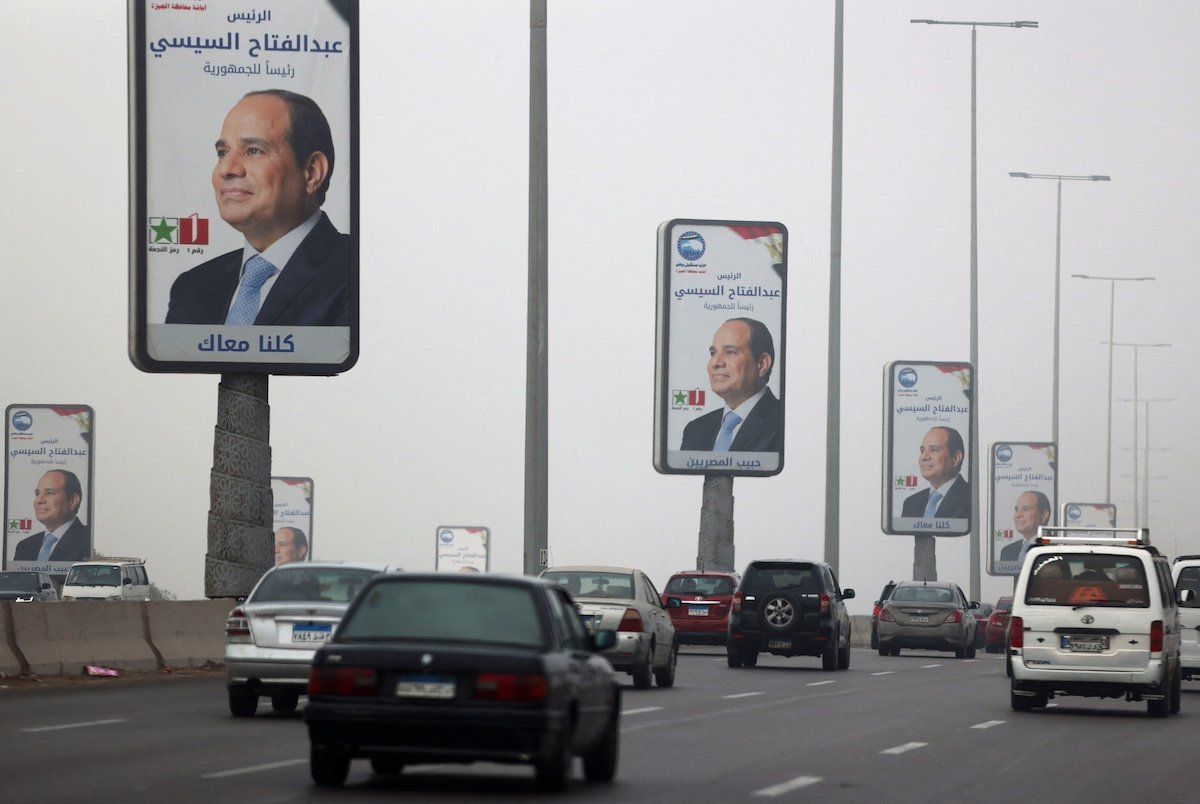Sorry to be a spoiler here, but: Egyptian President Abdel Fattah el-Sisi is going to win this weekend’s election, and it won’t be close.
During his decade in power, the ex-general has unleashed a ferocious crackdown on civil society, crushed the political opposition, and empowered his military pals to keep control over the commanding heights of the economy.
He is now running against three regime-approved opponents whose names you will never need to know because they do not stand a chance. The slogan “Sisi ra’isi!” (“Sisi is my president!” in Arabic) will carry the day.
Still, there is one big question: What will turnout be? After all, elections in dictatorships aren’t about choice and accountability, but they are about gauging the regime’s ability to mobilize support for itself. After several years of grinding economic crisis — the Egyptian pound has shed half its value over the past 18 months, causing inflation to soar — disillusionment with Sisi is thought to be growing.
And that matters because after the election, Sisi faces big challenges. One, of course, is to manage any spillover from the situation next door in Gaza. On this score, he is well positioned — he is a military man, after all, who cuts a strong figure on national security.
But he also has to make deeply unpopular economic moves. The heavily indebted country secured an IMF bailout last year, but the fund has paused the program until Sisi accelerates privatizations (which will anger his military buddies), cuts spending, and lets the currency weaken further (which will stoke already-high inflation, angering everyone).
Before pulling those teeth, Sisi will want to at least have the appearance of being firmly in control of a narrative – and a bureaucracy – that can prod people to the polls. In fact, he moved the election date up by a year for precisely this reason, experts say.
The upshot: Ignore the other candidates, watch for turnout, and buckle up for what comes after.
